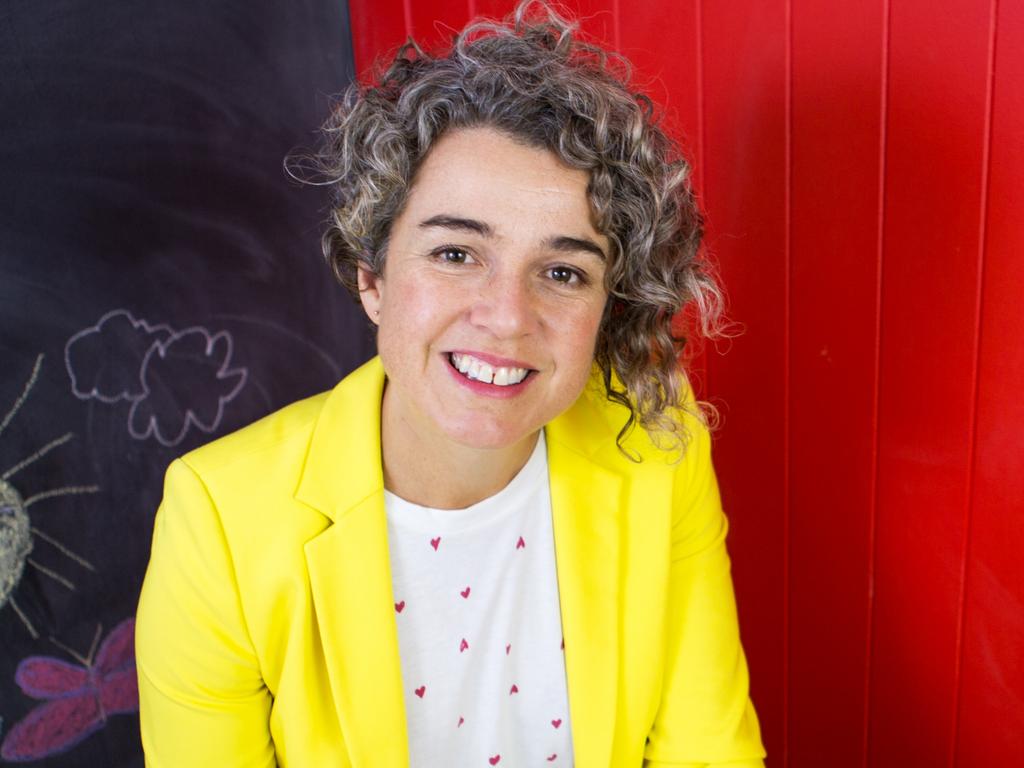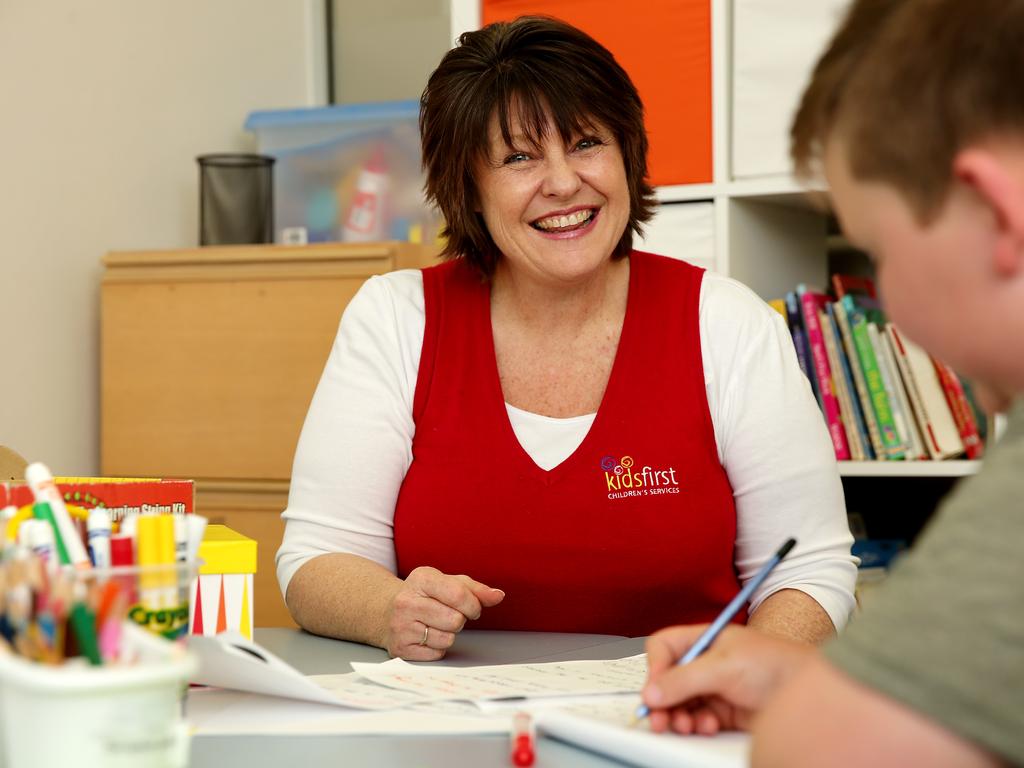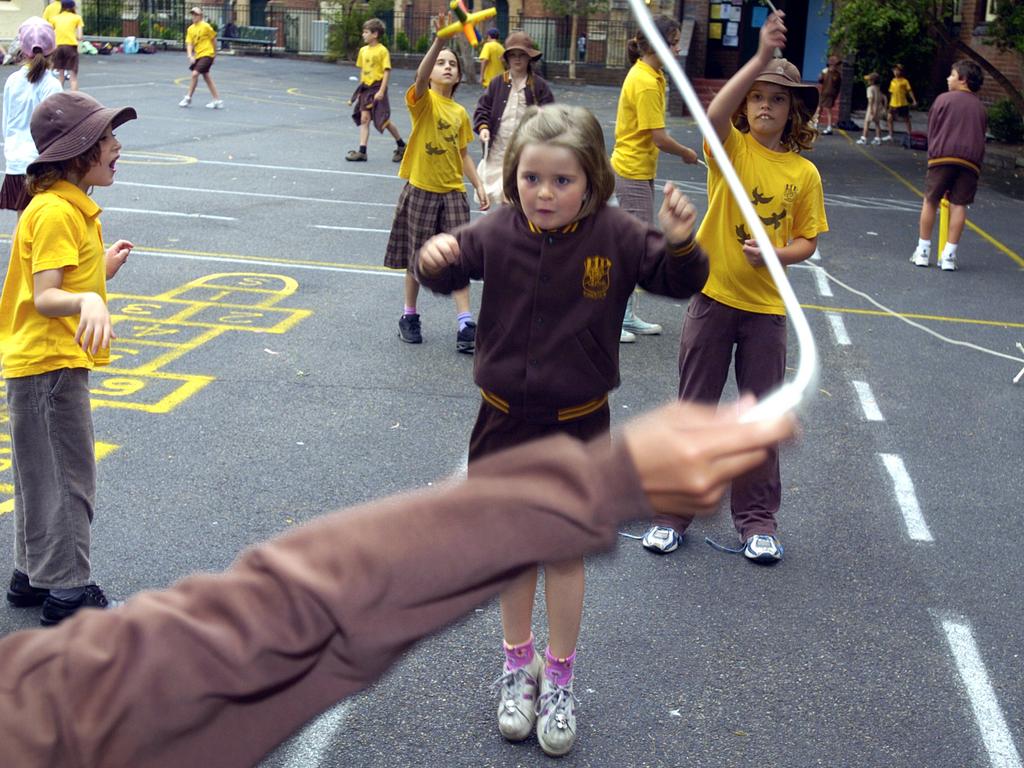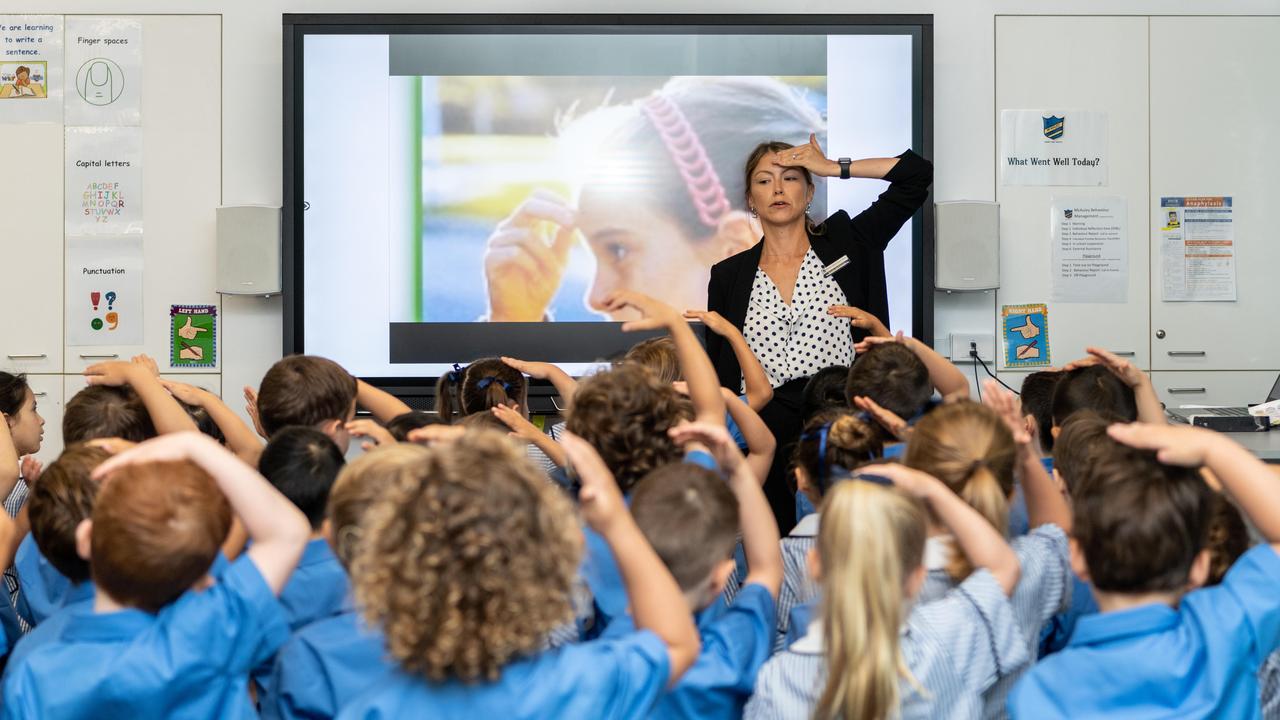Kindy guide: How to help your child make friends and be happy in school
Want to know how to help your kindy kid make friends, settle quickly in school and stay safe online? Here’s all our tips and tricks to get them off to the best start.
Getting used to classroom rules, making friends, understanding the complexities of playground etiquette and learning about online stranger danger are just some of the important lessons kindy kids will have to get to grips with in their first year.
Experts say parents can do a lot to help their child by preparing them in advance of school starting.
The Quirky Kid Clinic CEO and child psychologist Kimberley O’Brien said it’s best to start that transition to school at the age of four.

“Talk about school, meet the teacher, see if there is a buddy system,” she said. “Let them wear their uniform in advance to get used to it.”
It comes as News Corp launches a five-day deep dive this week into the key age brackets – both scholastically and emotionally – to help prepare kids and parents for school. Tomorrow will cover Years 3 to 5, Wednesday Year 7, Thursday Year 9 and Friday Years 11 and 12.
Ms O’Brien also warned that children who suffered separation anxiety when they were aged two are more likely to struggle in the two big school transition years, kindy and Year 7, and may need more time to get used to the change.

Kids First Children’s Services Founder Sonja Walker, has produced a digital school readiness kit to help prepare kids for kindy, packed with helpful hints for parents.
“Before starting school, teach them some playground games like hopscotch and handball,” she said.
“Help them learn how to win and lose, which is very important in the playground.”
Ms Walker said parents can become obsessed about whether their child has friends, but they should not interrogate them when they come home from school.
“At this age children are more interested in the game than who is playing, often they don’t know their names,” she said. “All the questions can be stressful.”

She added that signs a child may be overwhelmed include problems sleeping, tantrums, withdrawing and lack of appetite.
“Parents need to make sure they have realistic expectations of what a child can manage at this age, especially with after school activities,” she said.
Meanwhile, The Cyber Safety Lady, Leonie Smith, who advises parents on how to manage their children’s online life, said kindy was the time to set down strict rules around internet use.
She said kids should not have their own devices or be online by themselves without an adult sitting next to them.

Children should ask for permission to use a device or to download an app and they need to be taught about online stranger danger.
“Self produced child abuse material, where a child is asked to take a photo or video of themselves, is a growing issue and young children are often targeted,” she said.
“It is the parent’s responsibility to set clear boundaries.
“Make sure children understand that they should never take nude photos of themselves or photos of their private parts.”
She added that there will be kids at school who will not have the same rules for digital use as others and may share inappropriate content or talk about inappropriate content in the playground.

“It is important that your child feels like they can come to you and ask questions about anything,” she said. “So many don’t feel like they can.
“Tell them if they ever see anything confusing – what we would call inappropriate – to ask mummy or daddy about it. If they do find something, don’t tell them off. Create a safe space where they can tell you what is happening online.
“This is important for down the track in the teenage years, when they may be suffering from online bullying.”
Q&A WITH THE EXPERTS
Should kindergarten children be allowed devices? How important is it that they make friends? And, how can parents protect them against online predators? It is not easy for parents navigating the start of a child’s school life.
But social affairs reporter Ju; ie Cross, with help from The Quirky Kid Clinic child psychologist Kimberley O’Brien, Kids First Children’s Services Founder Sonja Walker and The Cyber Safety Lady, Leonie Smith, addresses the key dos and dont’s.
How can I help them settle into school?
If your child suffered separation anxiety at around the age of two, they are more likely to go through it again at kindy and in Year 7. It can also happen if the transition has not been planned well enough.
It is best to introduce starting school at the age of four, or around six months before they begin. Talk to your child about school and go through what kinds of activities they might do.
Teach them some playground games like hopscotch and handball.
Get their uniform organised in advance so they can try it out a few times before they start to make sure it is comfortable. Meeting the teacher prior to the first day is important and seeing if there is a buddy system with an older child.
When you take them to the classroom, don’t disappear without saying goodbye. Explain that you – or whoever is picking them up – will be back to collect them later.
When does separation anxiety become a problem?
If your child is getting clingy and teary the night before, it is time to seek help. Form a plan with the teacher on the best way to do drop-off. Also, try and reduce any stress in the family during the morning rush. Getting children out the door can be frustrating for busy parents. Make sure you’re organised as much as possible the night before. Remember some children will be exhausted after school and it might be better to let them rest and decompress rather than plan lots of activities. Children like routine. Be strict with mealtimes, bathtimes and bedtimes, which will help reduce any anxiety.
What if they don’t seem to have any friends?
Most kids this age are more interested in playing a particular game, than connecting one-on-one with other children. Don’t obsess too much about whether they have a “best friend”. Perhaps a better question to ask is, ‘Did you play any good games in the playground today?’ or ‘Did you play with someone?’. If they repeatedly say they are not being included in games in the playground, then ask the teacher to observe them for a while to see whether that is the case. Organising play dates outside of school, preferably in neutral territory, say a park, can help your child with making friends too.
Their new school friends want to connect online, is that OK?
Kindy kids should only be socialising face-to-face at this age. If they go online it should be under the supervision of a parent – which means an adult sitting next to them – and for no more than 30 minutes a day. They should not be allowed to have their own devices.
What are the latest fads to watch out for in this age group?
While most kindy kids don’t have their own phones, smart watches are becoming popular for this age group. However, they are an added distraction in the classroom, according to teachers. Some schools have started banning them.
Also be aware that there will be kids at school who will not have the same rules for digital use as your family and may share inappropriate content or talk about inappropriate content in the playground, which is why it is important your child feels like they can come to you and ask questions about anything.
What about online safety?
Set rules around devices, including having to ask permission to use one. If they borrow a parent’s phone to watch Bluey while you’re at the cafe, make sure the phone has parental controls, even if it is your own, and set it up for them to watch. Also make sure grandpa and grandma have parental controls too, and that they know your rules.
Tell them if they ever see anything confusing – what we would call inappropriate – while online to ask mummy or daddy about it. If they do find something, don’t tell them off. Create a safe space where they can tell you what is happening online. This is important for down the track in the teenage years, when they may be suffering from online bullying.
What about stranger danger?
These days, predators are more likely to try and connect with your child on the internet. Talk to your child about what a stranger looks like online. When they see an avatar moving around the screen, they may think it’s part of a game, but there could be an adult behind it. Teach them to chat and play with real friends only. Tell them what they can share online, such as their favourite colour or favourite pet, but never share their address, full name or take any photos of their body or private parts. This conversation needs to happen as young as four.
How to get them off a device?
Have a transition strategy so that they have something positive to go to when they hand over the device. For example, don’t make it something they don’t want to do such as go for a bath. Also, give fair warning of when they have to get off a device. If you are having trouble getting them off a device, explain why in a way they can understand, such as how we can’t eat a whole chocolate cake in one go because too much is not good for us.
GO TO WEBSITES:





